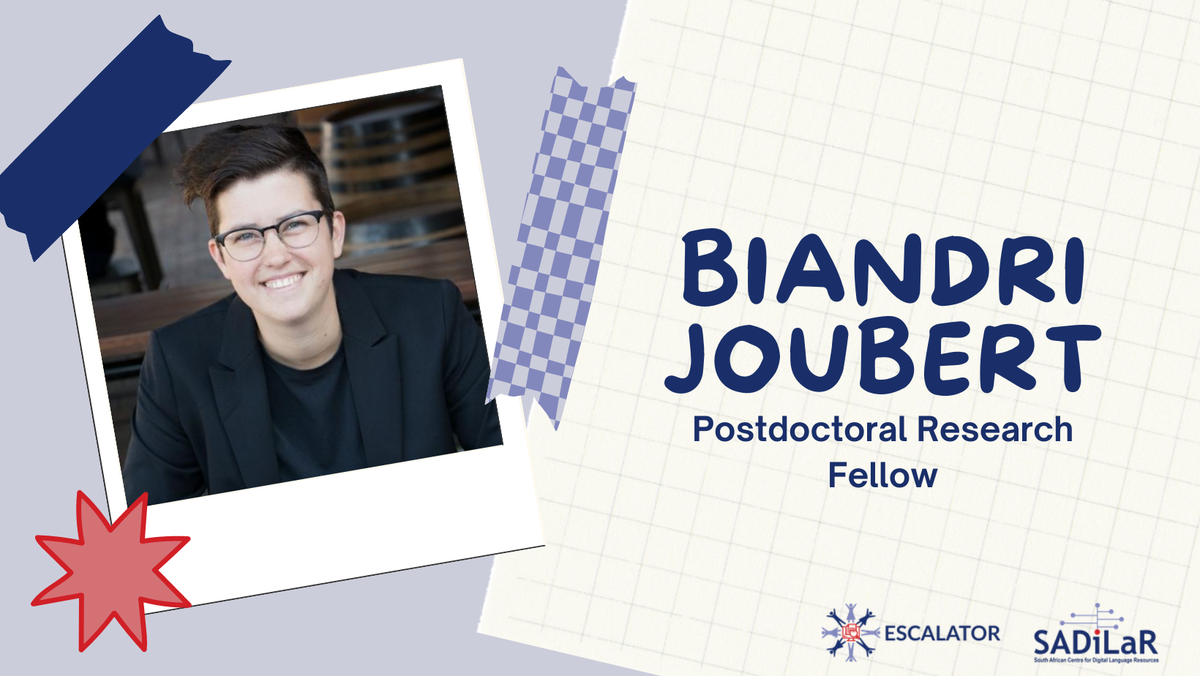International Women's Day event panellist: Meet Biandri Joubert

Today, our spotlight shines on Biandri Joubert, a postdoctoral research fellow at the University of Witwatersrand. Biandri is an active participant in OLS, R-Ladies and other communities of practice. She will also be a pannelist on our Women’s Day Event on the 8th of March 2024.
In short
- Preferred name and surname: Biandri Joubert
- Affiliation (where do you work or study): University of Witwatersrand
- Role: Postdoctoral research fellow
- Email: biandri.joubert@wits.ac.za or biandrijoubert@gmail.com
- LinkedIn: https://www.linkedin.com/in/biandri-joubert-phd-8270763b/
📽️ What is your all time favourite movie and what makes it so special?
A movie I keep going back to is “The Proposal” - Ryan and Sandra are a hilarious combination in a rom-com.
📚 Can you describe your background and your current role?
- What line of work are you in?
- Give a short summary of what you do in this role
- What did you study?
- How did you get involved in the tech space?
- What software do you use on a daily basis in your job?
- How did you learn to use these tools?
- Which tool has the biggest impact on your ability to succeed at work?
- Do you think women are well represented in your line of work?
I studied law and eventually settled on international trade law as my specific field of interest (import and export of agricultural products mostly). I got involved in coding in R during my PhD when I decided to incorporate a content analysis of legislation as part of my mixed methodology research. I did my first course with Dr Bianca Peterson and thereafter learnt a lot from communities of practice, YouTube, Coursera and Udemy. Women are not very prevalent in my line of work as far as law and coding is concerned but in terms of communities of practice and learning R there have been a lot of women involved in helping me achieve a significant amount of learning in a small amount of time. I use R for a lot of my work, including writing law related articles that are not coding dependent. It depends on the research I am doing at the time whether or not I include any computational methods or not.
🌱 Tell us more about your community of practice
- Describe the purpose of this community from your point of view.
- How did you get involved?
- Why do you find it useful to be a part of this community?
- Is your community accessible and welcoming to women? If so, how?
- How can other people become a part of this community?
- What other communities of practice are you a part of?
I am involved in a few different communities. I think what’s important for me is that a community of practice does not need to be a formal community nor does it need to be big. It doesn’t need a name and a youtube channel to be a community of practice. I think it is one of the most important components of learning something new and keeping up with developments in the field. Other than tech/coding communities of practice I am involved in communities related to fly-fishing and fly-tying and more recently birding.
💡 What advice do you have for women in Humanities and Social Sciences (HSS) eager to grow their computational skills?
My advice is just start! Start and push through all the initial fears and challenges. After that keep showing up and keep asking questions. I have only ever experienced helpfulness, kindness and understanding in the South African DH community and people are very open to helping someone get involved and grow their computational skills.